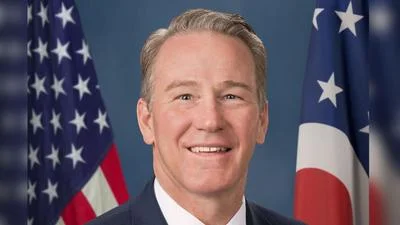Jeff Swartz CEO at Ohio Business Roundtable | LinkedIn
Jeff Swartz CEO at Ohio Business Roundtable | LinkedIn
The Ohio Business Roundtable (OBRT) has released a report highlighting potential electricity shortages in Ohio as early as 2027. The study, involving over 35 member organizations from various sectors of the energy grid, calls for immediate action to ensure reliable and affordable energy in the state.
Pat Tiberi, President and CEO of OBRT, emphasized the urgency: "Ohio’s energy future is at a crossroads. This study brings together a diverse coalition of industry leaders, all sounding the alarm: without action, our energy supply could be constrained as soon as 2027. Ohio can’t afford to fall behind."
The report identifies several factors contributing to the forecasted constraints, including the retirement of aging power plants and increased demand driven by economic growth and technological advancements such as AI. Additionally, there have been slow additions to baseload generation necessary for consistent reliability.
J.P. Nauseef, President and CEO of JobsOhio, highlighted Ohio's strategic position: “Access to reliable and affordable energy has helped make Ohio a magnet for companies seeking to capture the benefits of the best combination of a low cost of doing business and the cost of living.”
Projections indicate that demand in Ohio could grow by 50 percent by 2034, with large load users accounting for most of this increase. To address these challenges, OBRT recommends measures such as streamlining regulatory processes for new generation projects and improving transmission infrastructure.
Tiberi stressed the importance of these recommendations: "These recommendations provide a roadmap to ensure we have the power needed to fuel growth, attract investment, and keep our economy strong. Now is the time to act."
Specific proposals include establishing strict deadlines for regulatory actions on energy projects and creating an Office of Energy Resilience. Other suggestions involve designating priority areas for energy development and enhancing legal frameworks for behind-the-meter generation.
Baiju Shah, President and CEO of the Greater Cleveland Partnership, remarked on Ohio's opportunity: "Energy has rapidly become a top priority for the business community—right alongside innovation, talent, and housing—to keep growing our regions and state."
The OBRT plans to advocate its recommendations among state legislators to address projected energy needs effectively.






 Alerts Sign-up
Alerts Sign-up